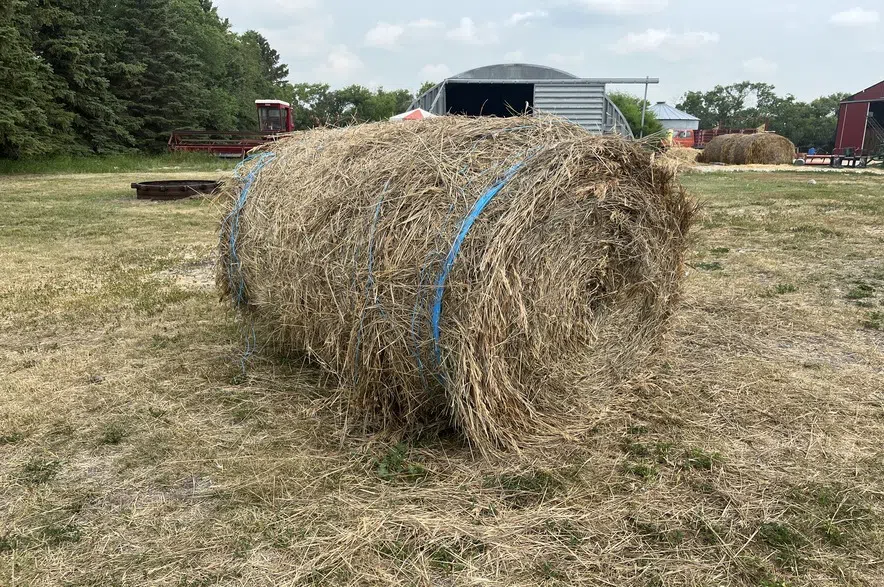The hot weather is nice if you’re out on the lake or tanning on the beach, but some Saskatchewan farmers are hoping to see temperatures drop by a couple degrees.
“If I were to ask for an ideal temperature, high 20s,” said Josef Buttigieg, owner of Fenek Farms north of Regina. “Thirties is starting to get a little ridiculous.”
Buttigieg said the rainy spring mixed with a hot July has led to a promising crop yield.
“In comparison to previous years … this year so far — knock on wood — (is) pretty good,” Buttigieg told 980 CJME.
“We got moisture at the right time. I was a little bit worried about temperature wise, at least initially, because June was fairly cool. But then we got the heat, … the moisture, and everything starting to fill up quite nicely.”
Fenek Farms grows barley, oats, peas and hay, as well as housing animals like sheep and cattle.
- READ MORE:
Here’s what to do if you suspect someone has heatstroke
People turn to Wascana Lake in midst of summer heat
‘Just let the rain keep coming, we need more,’ say Sask. farmers
As of July 15, 90 per cent of fall cereal crops were deemed normal, according to the Saskatchewan Crop Report. (Kaleb Sebastian /980 CJME)
Buttigieg said the heat doesn’t just affect crops, it can also take a toll on animals. He said it’s hard to keep animals cool in the rising temperatures.
“You can’t really cool any of them down … Cold water, we do give them frozen treats … Shade, lots of shelter. But there’s really nothing (else) you can do for them, unfortunately,” said Buttigieg.
Buttigieg said the heat also affects farm equipment.
“Never mind the animals and the farmer himself not liking the hot temperatures — the equipment doesn’t like it as well. We start to run tractors, you know, pulling bailers, and that type of thing, they start to overheat,” said Buttigieg.
Another factor making this year’s harvest look promising is the lack of pests in the field.
“I haven’t seen as many grasshoppers … There’s actually quite a lot of dragonflies of all things, but that’s not gonna hurt anything. But when it comes to grasshoppers and crickets — which last year around this time were pretty bad — this year … not that bad,” said Buttigieg.
As of July 15, 90 per cent of fall cereal crops were deemed normal, while 30 per cent of oil seeds were considered behind schedule for this time of year, according to the Saskatchewan Crop Report.
“We’ve already started harvesting hay and stuff,” said Buttigieg. “And in comparison to previous years, at least for this region, it’s a lot better than previous years. It’s promising,” he said.












